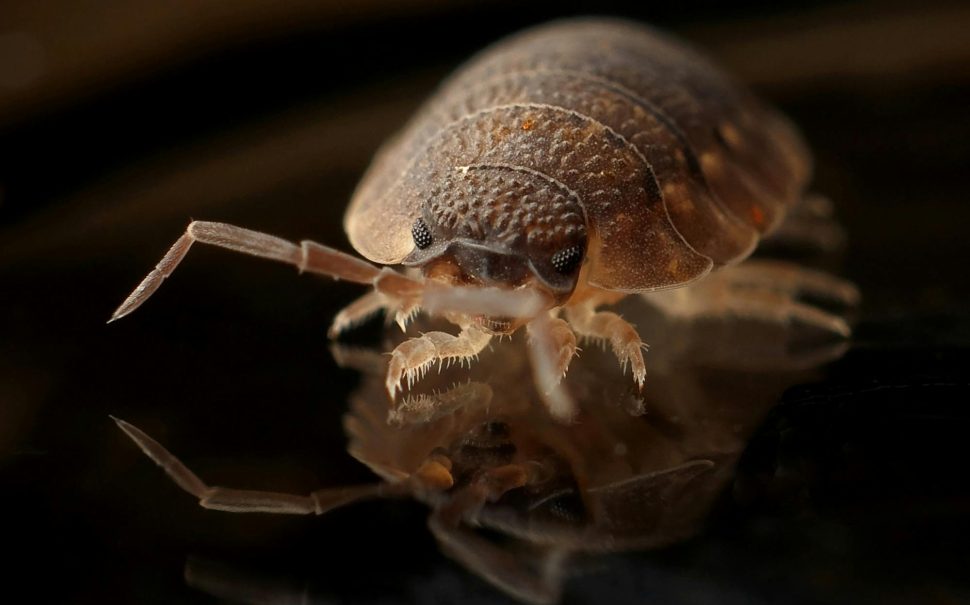For people in Manchester, a long-awaited holiday promises many different types of enjoyable experiences.
From exploring some of the world’s most ancient sites to relaxing on a beach somewhere warm and enjoying a little bit of overindulgence along the way, there is lots to look forward to.
What isn’t so enjoyable, however, is the potential for unwanted guests of the creepy-crawly kind.
Yes, there’s nothing like bedbugs, ticks, mosquitoes or even fleas that can quickly change the mood when you’re away, not only causing discomfort but also disrupting your travel plans.
This is where being as prepared as possible for these types of pests can help you reduce the discomfort and annoyance they can potentially bring – so what can you do?
Below, you will find a few tips to help you enjoy your European holiday and keep these unwanted guests away, letting you focus on what truly matters – a relaxing, stress-free break.
The types of unwanted guests
While you may not want to think about it, especially when arranging a nice relaxing holiday, there are a few common types of unwanted guests you might encounter.
Bedbugs are one of the most notorious among them, known for their ability to latch onto your clothing or bags to travel around and their preference for hiding in beds and furniture.
They can cause itchy bites and can quickly infest luggage and clothing if left.
Besides bedbugs, you should also be wary of fleas, which are often associated with places that have pets, and ticks, which can be picked up during outdoor activities in rural areas.
These pests are not just a nuisance, but they can also pose health risks.
Bedbug bites aren’t dangerous to your health but can lead to discomfort, while ticks are carriers of diseases like Lyme disease.
Fleas, too, can transmit infections and cause allergic reactions, so being able to reduce the risk of bites as much as possible is always recommended.
Gnats and mosquitoes are other well-known pests that you may encounter during the day and night, so taking precautions and researching your destination before setting off is a good idea.
The National Travel Health Network and Centre (NaTHNaC) country information pages have specific destination advice that is helpful.
Choose the right accommodation
The accommodation you choose plays a big part in how well you can avoid things like bedbugs.
You want to ensure where you choose to stay is both clean and hygienic, so a good way to know is by researching places to stay and reading customer reviews.
The latter can be incredibly helpful, especially if they are from recently as you’ll soon notice whether any particular hotel or accommodation has had a bug problem.
Websites like TripAdvisor or even Google Reviews often have honest feedback from past guests that can alert you to any potential red flags.
Look for hotels that actively advertise their cleanliness protocols and pest control measures.
Some hotels and rentals might even detail their regular inspections and the steps they take to ensure a pest-free environment, all helpful when you are looking to book.
You may want to reach out to the accommodation before booking to ask them directly about this too.
For example, in 2023 Paris and other French cities had a well-publicised issue with bed bugs, so naturally, this may be on your mind when looking to visit France.
Ask about the accommodation’s cleaning practices and how they handle pest control. They’ll then be able to provide reassurance when you look to book.
Preventative measures before travel
Usually, the best holidays are those with a mix of best-made plans and spontaneous adventures.
When it comes to your health whilst away, however, you won’t want to leave this to chance.
Before you set off it’s a good idea to take a few preventative measures that can help reduce the chances of encountering unwanted pests:
- Your luggage and bags: You want to have a suitcase that is in good condition, with limited entry points for pests. A suitcase cover can also provide a preventative layer to avoid any bugs getting into your luggage. As an additional measure, you may want to use vacuum-sealed or zip-lock bags to put your clothing in.
- Insect repellent: Bringing travel-sized pest repellents can be a wise choice and minimise the irritation to areas of your skin not covered by clothing. As per NHS Fit For Travel advice, apply this after sunscreen and reapply regularly, especially after swimming, washing or excessive sweating. These can deter not only bedbugs but also other pests like mosquitoes and ticks.
- Book travel insurance: In general, you shouldn’t travel anywhere without suitable travel insurance. This will ensure you are covered just in case anything unexpected happens such as the loss of personal belongings, any unexpected delays or changes to your plans, or any medical emergencies. Not all policies are as comprehensive as others, so it’s important to find specific cover for your requirements. A medical travel insurance policy will cover pre-existing medical conditions, for example, so you can travel with peace of mind if you have to claim for medical expenses.
Be vigilant during your stay
Once you’ve arrived at your hotel, it’s a good idea to inspect the room first before unpacking.
Check there aren’t any signs of unwanted guests so that if you do find an issue, you can alert management straight away.
Pay special attention to the bed by pulling back the linens and inspecting all four corners of the mattress, particularly around seams and tags, as these are favourite hiding spots for bedbugs.
Check the furniture and use a torch so you can see in dark spots.
Anywhere you will be keeping your suitcase and bags you’ll also want to check, ideally avoiding putting your bags directly on the floor.
This is because if there are any creepy crawlies around, putting your bag on a luggage rack or in the wardrobe can help prevent them from easily getting in – just be sure to check these areas too just in case.
Keep your belongings organised and sealed when not in use.
The fewer places pests have to hide, the better.
Following these steps during your stay can significantly reduce the risk of bringing them home with you.
What to do if you encounter pests
Whilst most of us won’t encounter any issues when away, if you do, remember not to panic.
If found in your room, speak to management straight away. They should be prepared to handle this type of situation and offer you a solution, such as moving you to another room.
Taking photos will help to show the issue too, as well as any signs of bites on your skin.
If you are bitten by anything when away, remember that most of the time this will cause some itching and discomfort rather than a serious issue.
Bedbug bites, for instance, can be treated with bite relief cream or antihistamines which can be bought over the counter before you travel.
However, if this doesn’t get better or becomes infected, you’ll want to seek medical attention.
Remember, if you declared on your travel insurance that you have had any symptoms, treatment, or prescribed medication in the last two years, this will ensure you are travelling with valid cover as per travel insurer Staysure.
That way, if you do have to pay for any medical expenses whilst away, you can avoid problems with claiming.
Keep the pests away and enjoy your trip
As mentioned, while it is possible to encounter problems with bedbugs and other common pests when on holiday, thankfully the chances are still slim.
Just like having insurance is there just in case you need it, being vigilant and aware of the potential annoyance of insects when travelling will in most cases help you avoid them.
By choosing good, clean accommodation, inspecting surroundings, and using insect repellent where needed, Manchester residents can enjoy their European trip without the worry of pesky intruders.
Picture credit: Free to use from Pexels




